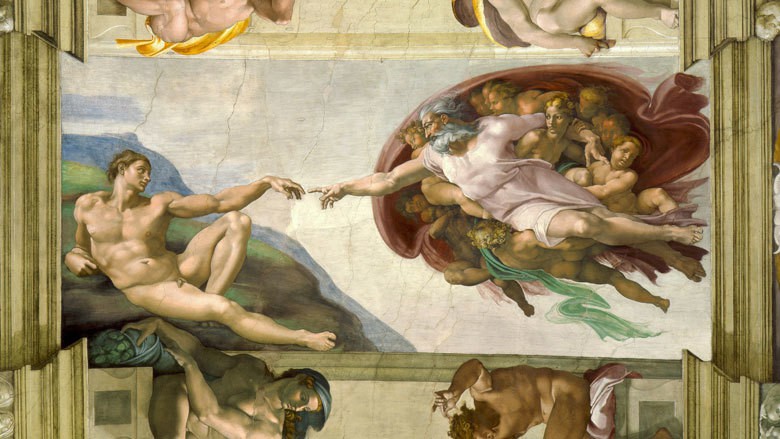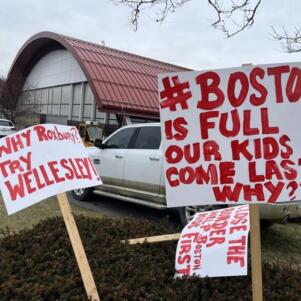Poll: Fewer Americans believe in God than in past decades
By CNS News | June 30, 2016, 13:05 EDT
 (Courtesy of Wikipedia)
(Courtesy of Wikipedia) (CNSNews.com) – Given a “yes” or “no” option, 89 percent of Americans — about nine in 10 — said they believe in God, while one in 10 say they do not, according to a new Gallup Poll conducted June 14-23, 2016.
But the pollster notes that 89 percent is down from levels seen in past decades.
When Gallup first asked Americans, “Do you, personally, believe in a God?” in 1944, 96 percent said yes. Between 94 percent and 98 percent of Americans said they believed in God in other surveys conducted through 1967. In 1976, Gallup modified the wording and asked Americans about their belief in “God or a universal spirit,” with 94 percent to 96 percent expressing belief through 1994.
In a separate poll conducted May 4-8, 2016, Gallup asked the question in a different way: “For each of the following items I am going to read you, please tell me whether it is something you believe in, something you’re not sure about or something you don’t believe in: God.”
In this poll, 79 percent said they “believe in” God, 10 percent said “not sure about,” and 11 percent said “don’t believe in.”
In 2001 and 2004, 90 percent of U.S. adults said they believed in God, with 7 percent and 5 percent, respectively, saying they were unsure. By 2007, the percentage choosing “believe in God” had dropped slightly to 86 percent, with another 8 percent expressing uncertainty. This year, “believe in God” dropped further to 79 percent with 10 percent unsure.
“Still,” Gallup notes, “the 89 percent who either believe in God or are unsure (as opposed to those saying they don’t believe in God) is the same as the 89 percent who respond affirmatively when asked the simpler ‘yes or no’ question, ‘Do you believe in God?’
Gallup also asked people about angels, heaven, hell, and the devil, giving them three options — believe in, not sure about and don’t believe in.
— 72 percent said they believe in angels; 12 percent said “not sure about”; and 16 percent did not believe.
— 71 percent believe in heaven; 14 percent were not sure; 15 percent said no.
— 64 percent believe in hell; 13 percent weren’t sure; 22 percent said no.
— And the devil take the hindmost: 61 percent believe, 12 percent not sure, 27 percent do not believe.
The implications, according to Gallup:
All of Gallup’s questions about belief in God show declines from previous decades. This follows the general trend in drops in other religious indicators over the decades. Most notable among these is that close to 20 percent of Americans now say they do not identify with a specific religious group or denomination, compared with smaller percentages who had no religious identity in decades past.
“The exact meaning of these shifts is unclear,” the pollster states. “Although the results can be taken at face value in showing that fewer Americans believe in God than did so in the past, it is also possible that basic beliefs have not changed — but rather Americans’ willingness to express nonreligious sentiments to an interviewer has.
“Whatever the explanation for these changes over time, the most recent findings show that the substantial majority of Americans continue to give a positive response when asked about their belief in God.”
Results for the Gallup poll are based on telephone interviews conducted June 14-23, 2016, with a random sample of 1,025 adults, aged 18 and older, living in all 50 U.S. states and the District of Columbia. For results based on the total sample of national adults, the margin of sampling error is plus or minus 4 percentage points at the 95% confidence level.
For results based on the total sample of 1,025 adults interviewed May 4-8, 2016, the margin of sampling error is plus or minus 4 percentage points at the 95% confidence level.
Each sample of national adults includes a minimum quota of 60 percent cellphone respondents and 40 percent landline respondents, with additional minimum quotas by time zone within region. Landline and cellular telephone numbers are selected using random-digit-dial methods.
— Written by Susan Jones











